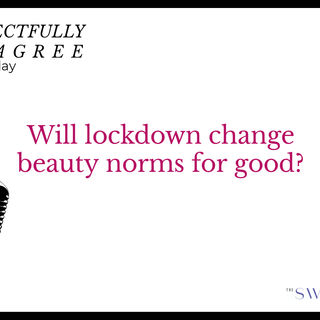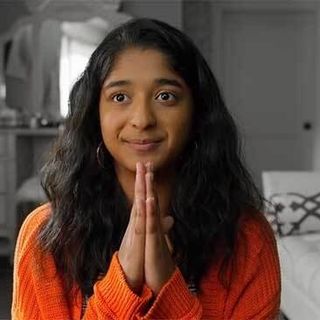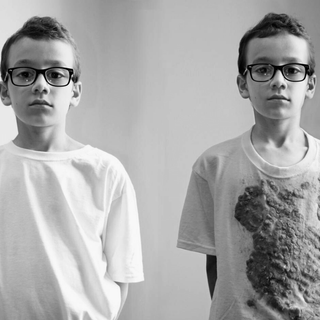
How Marriage Counseling in India Can Reinforce Unequal Gender Roles
Marital counselors often only help women bear the burden of coping with marital challenges and conflicts, instead of holding all parties accountable.

A few months ago, I had a conversation with my feminist colleague, who has been working towards building a gender-fair marriage with her husband, who she says is emotionally unavailable and an absent parent. The therapist was coaching her in a new communication technique that would help her make requests to her husband in a way that would help him comply. My colleague was left baffled, as she was engaging in a behaviour that she wanted to change, that is, of her doing more and him doing less. She was being asked to labor more by learning a new skill that would cater to her husband’s needs, while her husband was let off the hook.
Around the same time, another friend of mine shared with me her experiences with a marital counselor. After choosing her counselor with much care and research, she was still left despondent, when the counselor asked her not to expect her husband to help out with domestic chores. As her husband was already contributing to the household by bringing in a salary, he was doing his part, the counsellor told her. Citing the ‘expertise’ from the counselor, she says her husband succeeded in maintaining his privilege, ultimately undoing the work she had done so far in trying to ensure an equal marriage.
Related on The Swaddle:
We Need to Reframe Mental Health as a Social Justice Issue, Not a Personal Problem
As marital therapists can influence the shaping of gender roles within a marriage, they need to be aware of the power imbalances within a marriage arising out of patriarchal privileges, such as men’s little to no contribution towards the family, women’s docility with in-laws and the deprioritization of their careers. Sometimes, therapists and counsellors might be inadvertently contributing to these power asymmetries. In the cases mentioned above, marital therapists were making the wives labor more — both emotionally and physically, while not holding the men accountable to their responsibilities.
One reason this happens is because women seek mental health services more often than men; research shows men display low-help seeking behaviors informed by traditional notions of masculinity. This, unfortunately, has translated to women becoming subjects of improvement. Women are socialized into displaying and accepting their emotions, which leads them to seek mental health services. As they are at the receiving end of the power imbalance, women are the ones who question the sexist hierarchy and aim to neutralize it by opting for marital counseling. This could, however, lead to women being disproportionately burdened with tasks that make additional demands on their time. As both male dominance and women’s subordination is culturally sanctioned in many patriarchal households in India, behaviours that enable it are routinely performed even in a counselor’s office. Although counselors might be aware of social structures, such as gender, affecting people’s everyday interactions, they might struggle to identify them in practice. This leads to a couple sustaining a traditional marriage, where typically the wife is subordinated. This normalization of patriarchal practices is then passed down generationally.
The counselor’s ability to consider social, political and historical context is dependent on effective training. Yun Pang, a couples’ therapist who practices in New Delhi, says the instruction provided to mental health students in India is inadequate, which creates professionals who are unable to holistically consider the social conditions of people that affect their realities. Indeed, the idea that women are responsible for the health of their marriage is a notion that is pervasive in the academic literature on family or marital therapy. For example, in a research paper by Carson and Chaudhary, one of the reasons cited for a rise in marital discord is the high level of education in women. Education, which is credited with empowering women, is regarded as a threat to family stability by these researchers, which could problematize educated women.
That women’s issues are inadequately represented in psychology is a known fact. Simone de Beauvoir was a feminist and a staunch critic of psychology’s treatment of men, which pits women as helpless patients against the all-knowing therapists. In fact, research by Bhargavi Davar has examined how upper-caste elite males, who did not consider the lived realities of women, let alone the realities of women with intersecting marginal identities, introduced psychoanalysis in India. This has led to psychoanalysis and most other psychological schools of thought to ignore structures like patriarchy, caste, religion, and even regional differences.
Nanki Oberoi, a psychotherapist in New Delhi, highlights the need to view women holistically, considering the varied identities they might have and how they intersect. If marital and couples’ therapy students are not trained to question social structures that create power asymmetries in a marriage, they might accept the gendered assertions made by researchers. One example is a 2009 paper by Carson and team, which states that women seeking assistance outside the family can weaken the family structure, and husbands cannot be included in couples’ therapy as they might be threatened by being vulnerable in front of their wives. These beliefs could lead a therapist viewing women who seek help, or who challenge the gender order or traditional family structure, as a problem to be corrected. Seeing the woman as the problem could lead to interventions that try to change the woman’s thoughts, attitudes or behaviours while saying nothing of patriarchal structures that cause the problem.
Take for example, a woman who belongs to a minority religious community in India married into an upper-caste Hindu family. Her intersecting identities, of belonging to a subordinate gender and minority religion, could prevent her from asserting her identity. The pressures to conform to a religion that is not her own — a patriarchal demand — can lead to mental and emotional strains. If this woman is regarded as a problem to be corrected, she might be coached in learning more adaptive behaviors, without ever addressing the looming effect of powerful social structures.
There are some ways that marital therapists and counselors can become aware of the gendered ideas they themselves operate with. One method is to conduct a discourse analysis of couples’ therapy sessions. Discourse analysis is a tool that is used by researchers to examine the dominant social narratives that one might ascribe to, which get reinforced through the counseling session. A 2016 research paper suggested how conducting a discourse analysis of the therapist’s sessions with couples can help reveal how the counselor might entrench power struggles. Although discourse analysis is not widely used by therapists, it could be a practice that is adopted by them. It could also be used during the training of student psychologists to help identify and shape their attitudes and ideas early. Thankfully, not all marital therapists and counselors separate people from societal factors and are able to see the role they can play in creating some gender fairness.
Related on The Swaddle:
Marriage Is an Inherently Unfeminist Institution
Another method is to adopt feminist counselling. Some marital therapists and counselors, in recent times, have been making efforts to specifically evaluate the socio-political situations that might impact a marriage. Feminist counselling and therapy is another way to look at people as part of society and not merely as individuals. Feminist counselors and therapists are few but are gaining in popularity going by the number of requests circulating on social media for ‘non-judgemental’ counselors and therapists. As more people of subjugated identities realize that the cause of their mental and emotional disorders are not individual factors but structural, they are seeking more thoughtful therapists and counselors. Feminist marital counselors and therapists are aware of the cultural dynamics that uniquely affect women and keep these at the center of their practice. Feminist therapy was developed as a response to conventional therapy that privileged the knowledge and methods of male psychologists, and foregrounded the experiences of women. It could be natural to assume that feminist therapy sides exclusively with women, however, that is not the case. In its truest form, feminist therapy or counseling considers dominant societal forces that affect the mental and emotional well-being of any subjugated person. This could, therefore, also include, men who are inclined to explore alternative masculinities.
According to Yun Pang, a couple turning to marital therapists and counselors can be an indication that they would like to live their lives differently from tradition. As seeking professional help for something as personal as conflicts within a marriage is also stigmatised, couples seeking professional help in resolving conflicts is a departure from traditionally held beliefs that family problems must be kept a secret. The counselor plays the role of regulating and constructing society through their service of helping couples navigate doubts and identifying what is best for themselves. In such cases, it is imperative that marital therapists and counselors encourage more progressive and equality-based behaviors and not disillusion women into believing that a new kind of marriage, where they enjoy equality, is not possible. Marital counseling, therefore, should not become an effort in disciplining women into subservient wives.
Fiona is an educator and researcher in Gender and Education. She can be found on Instagram @publicintellectual.
Related


Mindy Kaling’s ‘Never Have I Ever’ Caricatures Indianness, Glorifies Clichés
